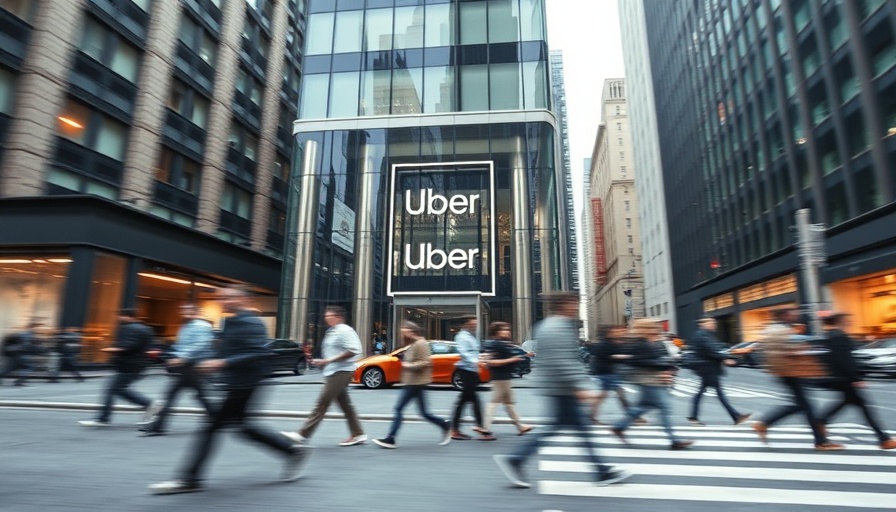
Justice Department Takes Action Against Uber: A Step Towards Inclusivity
In a significant move, the U.S. Justice Department (DOJ) has stepped up to challenge Uber, accusing the ride-sharing giant of discriminating against individuals with disabilities. This lawsuit, filed in California’s Northern District, alleges that Uber has routinely refused service to people with disabilities, including those accompanying service animals or using stowable wheelchairs. Claims also include the imposition of additional fees for special accommodations, which the DOJ argues violates the Americans with Disabilities Act, aiming to provide equal opportunities for all riders.
The Weight of Discrimination: Impact on Local Communities
This lawsuit isn't just about Uber’s corporate policies; it holds deeper implications for small to medium-sized businesses (SMBs) that serve diverse communities. If Uber, a key player in local transport, fails to adapt, this could set a troubling precedent for creating inclusive business environments. For marketing managers and entrepreneurs in the retail, hospitality, and service sectors, understanding this case highlights the significance of ensuring services are accessible to everyone.
Understanding the USDJ's Position: A Call for Change
The DOJ’s complaint makes it clear that issues concerning accessibility aren't merely legal matters; they are social ones too. "Uber denies people with disabilities full and equal enjoyment of its services," the DOJ passionately asserted. This is a rallying cry for businesses, reminding them that inclusivity should be at the forefront of their missions. A company that prioritizes accessibility can enhance its brand image and customer loyalty, making this lawsuit a noteworthy event for SMBs aiming to build community connections.
Learning from the Past: Uber's History of Legal Challenges
Uber's history with legal challenges regarding disability discrimination isn't new. Back in 2021, the DOJ filed a lawsuit against the company for overcharging riders with disabilities. Following that, a settlement in 2022 saw Uber paying millions to affected users. This legal precedent suggests consistent issues that could complicate Uber's reputation and market standings, opening up space for rival companies that prioritize accessibility.
Future Implications: How Will This Affect Local Marketing Strategies?
The implications of this lawsuit extend beyond Uber itself. SMB owners must consider how accessibility impacts their marketing strategies. Brands that advocate for inclusivity may likely see increased patronage from marginalized communities. Incorporating accessible services can also enhance brand loyalty and create a positive social impact. This case underscores the importance of leveraging digital tools that help optimize local marketing efforts, ensuring businesses do not leave any potential customer behind.
Practical Insights for SMBs: Adapting to Inclusive Practices
So, how can SMBs adapt to these changes? By slowly integrating inclusive practices. This could mean training staff on disability awareness, ensuring physical spaces cater to various needs, and reviewing policies to eliminate any barriers. Additionally, utilizing digital tools—like analytics tools for business growth—can help monitor how accessible services impact customer satisfaction. This pivot will not only align with changing legal landscapes but also meet the expectations of a more socially conscious customer base.
Final Thoughts: The Importance of Awareness in Business
As Uber battles the DOJ, this situation shines a light on the broader need for inclusivity in business practices. The implications of accessibility extend far beyond legal compliance—they affect community trust and loyalty. SMBs equipped with the right marketing tools and a commitment to inclusivity can turn these challenges into growth opportunities, creating lasting relationships with a diverse customer base.
To be part of the change, businesses should actively seek out the best marketing tools for SMBs that address these needs, and ensure they are not inadvertently sidelining potential patrons. Embrace the power of digital tools tailored for local businesses to ensure you remain ahead in the competitive landscape.
 Add Row
Add Row  Add
Add 




Write A Comment